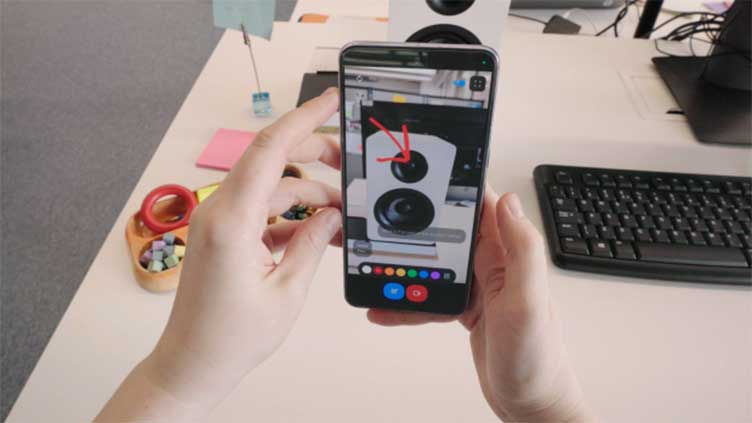Google reveals all-seeing AI camera tool that remembers where you left your things

Technology
Losing your glasses or car keys could soon be a problem of the past
(Web Desk) Losing your glasses or car keys could soon be a problem of the past after Google revealed a new all-seeing and hearing AI tool.
The tech giant has announced a raft of major upgrades to its AI efforts as it fights to keep up with ChatGPT creator OpenAI.
OpenAI jumped ahead of Google's annual developer event to announce its own big boosts on Monday, including an enhanced chatbot that can see photos and even speak to you like a super-charged Siri.
Now Google is hoping to win over users with a new Project Astra concept that sees everything around you using the camera on your smartphone.
It allows people to walk around and ask anything about their surroundings in real-time.
For example, the tool can identify the name of parts on a piece of equipment such as a speaker that you may need to repair.
But even more shocking is the tech's ability to remember what it's seen as you walk around a room.
In a demo video, Google showed how a person asked "Where did I leave my glasses?" and the tool instantly recalled seeing them.
"To be truly useful, an agent needs to understand and respond to the complex and dynamic world just like people do — and take in and remember what it sees and hears to understand context and take action," explained Demis Hassabis, boss of Google's AI division DeepMind.
"It also needs to be proactive, teachable and personal, so users can talk to it naturally and without lag or delay."
The tech giant says it has also improved how voice assistants sound so they're more natural.
Parts of Project Astra will appear in Google products like the Gemini app later this year.
Hassabis added: "These agents were built on our Gemini model and other task specific models, and were designed to process information faster by continuously encoding video frames, combining the video and speech input into a timeline of events, and caching this information for efficient recall."
The announcement comes a day after OpenAI surprised the world again with its new Chat-GPT4o tech that can also see things and react.
Bosses showed how it could solve mathematics just by holding the camera in front of a piece of paper, as well as figuring out a person's mood simply by looking at their face.


